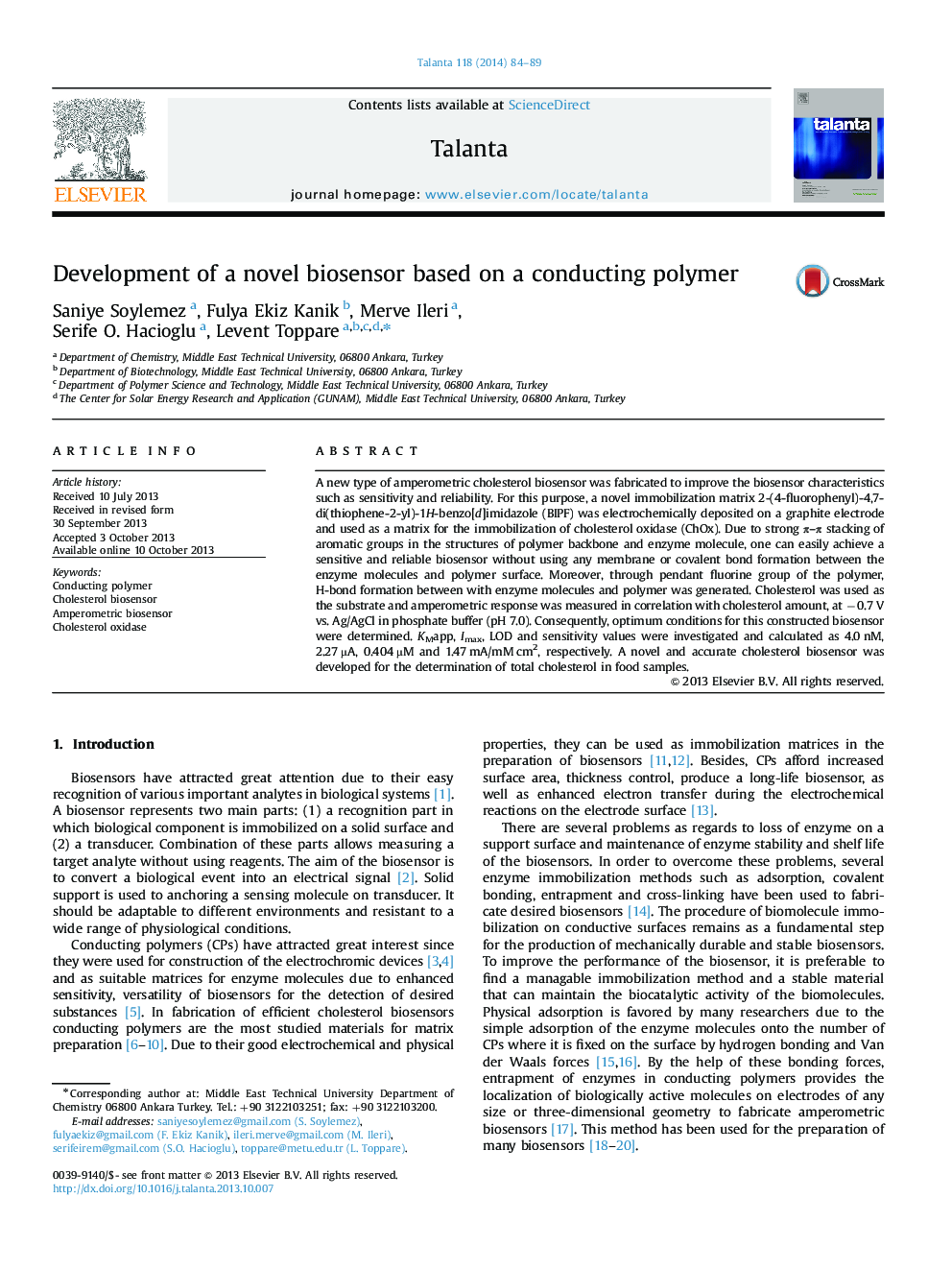| Article ID | Journal | Published Year | Pages | File Type |
|---|---|---|---|---|
| 1242092 | Talanta | 2014 | 6 Pages |
•Development of well-arranged conducting polymer based novel cholesterol biosensor for successful biosensor applications.•Adsorption technique for excellent enzyme immobilization.•Rapid, sensitive, reliable and long-life cholesterol biosensor.•Successful application for the determination of cholesterol in food samples.
A new type of amperometric cholesterol biosensor was fabricated to improve the biosensor characteristics such as sensitivity and reliability. For this purpose, a novel immobilization matrix 2-(4-fluorophenyl)-4,7-di(thiophene-2-yl)-1H-benzo[d]imidazole (BIPF) was electrochemically deposited on a graphite electrode and used as a matrix for the immobilization of cholesterol oxidase (ChOx). Due to strong π–π stacking of aromatic groups in the structures of polymer backbone and enzyme molecule, one can easily achieve a sensitive and reliable biosensor without using any membrane or covalent bond formation between the enzyme molecules and polymer surface. Moreover, through pendant fluorine group of the polymer, H-bond formation between with enzyme molecules and polymer was generated. Cholesterol was used as the substrate and amperometric response was measured in correlation with cholesterol amount, at −0.7 V vs. Ag/AgCl in phosphate buffer (pH 7.0). Consequently, optimum conditions for this constructed biosensor were determined. KMapp, Imax, LOD and sensitivity values were investigated and calculated as 4.0 nM, 2.27 µA, 0.404 µM and 1.47 mA/mM cm2, respectively. A novel and accurate cholesterol biosensor was developed for the determination of total cholesterol in food samples.
